What if Iran withdraws from the NPT?
By Mark Goodman, Mark Fitzpatrick | June 25, 2025
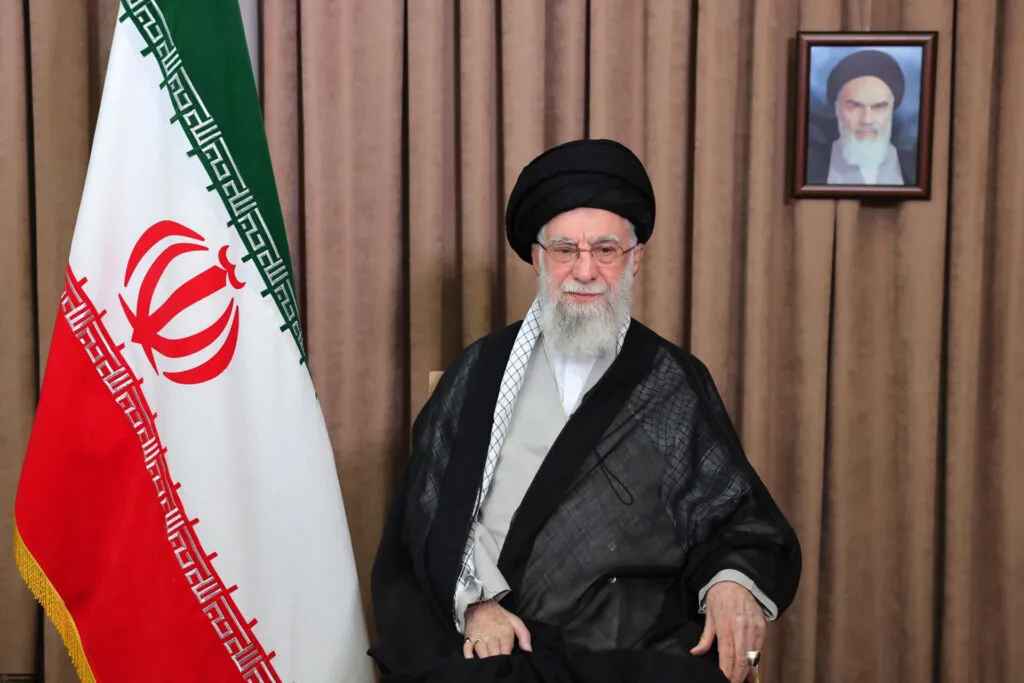 In this handout image provided by the Office of the Supreme Leader of Iran, Iranian Supreme Leader Ali Khamenei addresses the nation in a state television broadcast on June 18 in Tehran, Iran. In the address, he said the Iranian people would never surrender and that “any form of US military intervention will undoubtedly be met with irreparable harm.”(Photo by Office of the Supreme Leader of Iran via Getty Images)
In this handout image provided by the Office of the Supreme Leader of Iran, Iranian Supreme Leader Ali Khamenei addresses the nation in a state television broadcast on June 18 in Tehran, Iran. In the address, he said the Iranian people would never surrender and that “any form of US military intervention will undoubtedly be met with irreparable harm.”(Photo by Office of the Supreme Leader of Iran via Getty Images)
As the Iranian nuclear program saga plays out, one diplomatic action has been widely expected: Iran may declare its withdrawal from the Nuclear Non-Proliferation Treaty (NPT).[1] Such a withdrawal would eliminate the legal prohibition on Iran’s acquisition of nuclear weapons and the requirement that Iran accept international safeguards monitoring. Over the past decade, Iran has threatened many times to play this card in retaliation for far less serious assaults.
NPT withdrawal is one of the few actions available to Iran that would have a significant effect. It would facilitate reconstitution of Iran’s bombed nuclear capabilities and enable Tehran to use them to develop nuclear weapons without international oversight.[2] Even with the loss of the 14 nuclear scientists and engineers assassinated by Israel this month, Iran surely retains the knowledge on how to build centrifuges and assemble them into cascades, plus the expertise acquired during the secret work to date on weapons development. Iran may also have taken steps to remove equipment and material from its enrichment facilities before the US attacks against three Iranian nuclear facilities over the weekend.
Given these realities, Iran likely will be able to build and operate a secret underground enrichment plant capable of producing significant quantities of weapons-grade highly enriched uranium (HEU). This process will be sped if Iran was able to protect from Israeli bombing the over 400 kilograms of uranium enriched to 60 percent uranium 235 content the International Atomic Energy Agency (IAEA) says Iran had as of May[3] and, until recently at least, stored in easily transportable cylinders. At a time when much of the world sees Iran as the victim of Israeli aggression, NPT withdrawal could be accomplished with less political blowback than if it were employed in response to economic sanctions.
Iran’s adversaries would see NPT withdrawal as tantamount to a declaration of nuclear weapons intent. There is no such legal connection, however, and the logical case is not airtight. It is conceivable that Iran could withdraw from the treaty and maintain a policy of nuclear hedging, even as it reconstituted its enrichment program in secret. A decision to actually build a nuclear weapon could be made down the road when the capabilities are again in place. Invoking the NPT’s withdrawal clause in the near term would risk military escalation with few immediate benefits, though ending IAEA inspections would reduce the transparency and vulnerability of a reconstituted nuclear program.
Iran’s NPT status. Iran signed the NPT in 1968 and became one of its original parties when the treaty entered into force in 1970. As a non-nuclear-weapon state, Iran is prohibited from acquiring nuclear weapons and from seeking or receiving assistance in the manufacture of nuclear weapons. As an NPT party, Iran is also required to accept IAEA safeguards—international monitoring and inspections—on all its peaceful nuclear activities. To that end, Iran concluded a comprehensive safeguards agreement with the IAEA in 1974.
The IAEA Board of Governors has twice found Iran in non-compliance with its safeguards agreement. The first time was in 2005 because of Iran’s extensive undeclared nuclear activities, including uranium enrichment.[4] The second was on June 12 of this year, because Iran failed to provide credible explanations for traces of nuclear material discovered in 2019 and 2020 at three previously undeclared locations. Leading up to the latest finding, the IAEA had been unable for several years to confirm that Iran has declared all of its nuclear material. The latest IAEA resolution added the key finding that the agency cannot confirm that nuclear material has not been diverted.[5] This finding provides another basis for reporting the matter to the UN Security Council, though the resolution held off on taking that step.
A comprehensive IAEA safeguards agreement remains in force as long as the country involved remains a party to the NPT. If the state announces its withdrawal, that notification does not become effective for three months, at which time the safeguards agreement, and the legal basis for IAEA inspections, lapses as well. If Iran were to withdraw from the NPT, then, the IAEA inspectors would lose the legal basis for sending inspectors to monitor Iran’s nuclear facilities. Iran could choose to maintain relations with the IAEA and a degree of monitoring, and such inspections might give Iran a degree of credibility in some quarters. But without the legal basis in a safeguards agreement there would be no UN enforcement mechanism.
Without IAEA monitoring, the world would lose its only internationally recognized means of tracking Iran’s nuclear capabilities. Understanding of Iran’s capabilities and progress would inevitably erode. Western intelligence agencies would continue to employ national means of monitoring, via overhead imagery, signals interception, human agents, and the like. Without routine IAEA access to Iranian facilities and personnel, however, there is far less guarantee of detecting nuclear weapons development. The very word used to describe such a development—“breakout”—would lose its meaning, since it is an abbreviation for breaking out of a treaty to which Iran would no longer be a party.
Threatened NPT withdrawal. Over the years, Iranian officials have made several statements about possible withdrawal from the NPT. In 2018, the secretary of Iran’s Supreme National Security Council said withdrawal was one of Iran’s choices if Trump were to follow through on threats to change or abrogate 2015 nuclear deal.[6] A year after Trump pulled out of the deal, then-Foreign Minister Javad Zarif said authorities were considering leaving the NPT.[7] In 2020, Zarif again threatened NPT withdrawal if European states were to report Iran to the UN over safeguards violations.[8] In private discussions with one of us, Iranian security experts posited an attack on Iran’s enrichment facilities as a likely trigger for Iran to leave the treaty. In 2023, senior officials threatened withdrawal if the European Council were to list the Islamic Revolutionary Guard Corps (IRGC) as a terrorist group.[9]
On January 11, 2025, the Iranian government threatened to withdraw from the NPT if UN sanctions that were lifted under the 2015 Joint Comprehensive Plan of Action are reimposed in accordance with the associated UN Security Council resolution.[10] This “snapback” mechanism expires in October. In the wake of Israel’s bombing, calls in Iran to withdraw from the NPT and build nuclear weapons have intensified.[11] On June 16, the foreign ministry spokesperson announced that Iran’s parliament, the Majlis, was preparing a bill that would withdraw Iran from the NPT.[12]
Implications of withdrawal. Article X of the NPT allows withdrawal from the treaty if a party “decides that extraordinary events, related to the subject matter of this Treaty, have jeopardized the supreme interests of its country.” To do so, it must give three months’ advance notice to all other NPT Parties and to the UN Security Council, including a statement of those “extraordinary events.” After those three months, the obligations not to acquire nuclear weapons and to accept safeguards would cease.
Only one country, North Korea, has ever exercised this provision. It did so first in 1993, after being found in non-compliance with its IAEA safeguards agreement for failing to make a complete initial declaration, but it lifted its notification one day before its withdrawal would have gone into effect. This lifting was part of the Agreed Framework that froze North Korea’s nuclear program under IAEA monitoring and provided for energy assistance to the North during that freeze.
In 2002, however, the United States concluded that Pyongyang had violated the Agreed Framework by developing a clandestine uranium enrichment program, setting off a chain of events that led to the expulsion of IAEA inspectors, a further non-compliance finding, and North Korea’s second notification of NPT withdrawal. Efforts to negotiate a new framework to contain North Korea’s nuclear program broke down a few years later, and North Korea has since conducted six nuclear tests and built an estimated 50 nuclear weapons. That withdrawal subsequently was a factor in the ensuing UN Security Council sanctions imposed on North Korea. Some NPT parties have never accepted North Korea’s withdrawal as valid in meeting the requirements of Article X, questioning whether its notification cited “extraordinary events” that were “related to the subject matter of the [NPT].”[13]
In Iran’s case, such questions are unlikely to be raised, since the “extraordinary events” are obvious.
International responses. Iran’s previous threats to withdraw from the NPT may have been intended as bargaining ploys. An actual withdrawal would likely have backfired then and made Iran more vulnerable to international pressure,[14] but international reactions to an Iranian withdrawal under current circumstances would be much more muted. The UN Security Council is unlikely to mandate sanctions or monitoring requirements, and Iran’s nuclear suppliers and trading partners would feel little pressure to curtail such cooperation.[15]
Since North Korea’s withdrawal notification in 2003, NPT Parties have considered ways to prevent other states from taking similar actions. Those deliberations identified some broadly-supported principles: that withdrawal would undermine the security of remaining NPT parties; that states should not be able to use withdrawal to escape responsibility for NPT violations; and that a withdrawing state should not be allowed to divert the fruits of peaceful nuclear cooperation to weapons. They also identified potential actions based on these principles, including diplomatic engagement, mandating continued IAEA safeguards, and curtailing nuclear cooperation.[16]
Notably, none of these proposals entails amending the NPT, which is practically impossible, or otherwise restricting the withdrawal right in Article X. The UN Security Council decided in 2009 (resolution 1887) that it would address any withdrawal notification without delay and encouraged supplier states to include a right of return in their nuclear cooperation agreements.[17] At the 2022 NPT Review Conference, participating states nearly approved a final document endorsing several of these elements, but Russia ultimately blocked consensus over other parts of the document that dealt with its invasion of Ukraine.[18]
For states with civil nuclear programs that depend on international cooperation and supply arrangements, measures that threaten to curtail both past and future supplies could have significant impact. But in Iran’s case, these options are probably moot. Russia is the only country with an active nuclear cooperation agreement with Iran, given its involvement in building the Bushehr reactor and some associated facilities. Russia also supplies the fuel for Bushehr and has been building two more reactors at the Bushehr site. Though Moscow would likely seek to dissuade Tehran from withdrawing from the NPT, their deepening relationship makes it unlikely that Russia would put pressure on Iran in this way. Russia could demand that IAEA safeguards be maintained at those facilities, in accordance with the guidelines of the Nuclear Suppliers Group, to which Russia belongs. Even if Russia did so, insisting on safeguards at Bushehr would provide no insight into Iran’s other nuclear activities, including its uranium enrichment program, and would provide no meaningful confidence about Iran’s intentions.
There is little prospect of effective multilateral responses to an Iranian withdrawal notification, aside from toothless requests for Iran to reconsider its decisions. Such responses would require consensus at least among the five permanent members of the UN Security Council. This does not preclude other forms of pressure exerted by individual countries or ad hoc coalitions. Those could take the form of economic sanctions or coercive military actions, but to be effective they would have to be accompanied by a credible diplomatic alternative. Iran would have a strong interest in alleviating such pressures but has proven remarkably resilient in withstanding pressure when its national honor is at stake.
If Iran withdraws, will proliferation follow? The NPT is the world’s most inclusive nuclear arms control agreement, lacking only India, Israel, Pakistan, South Sudan, and, arguably, North Korea. It is also arguably the most effective, having helped to keep the number of nuclear-armed states to a single digit. North Korea’s 2003 withdrawal did not fatally undermine the treaty, though its nuclear program has created incentives for South Korea and, less so, Japan, to consider their options. A second withdrawal could have more serious effects, especially if Iran were to follow North Korea’s example and begin to produce nuclear weapons. Saudi Arabia has vowed to follow suit if Iran were to get the bomb, and Turkish President Recep Tayyip Erdoğan has spoken about the unfairness of nuclear-armed states preventing Turkey from acquiring nuclear weapons. Nor would the repercussions be limited to the Middle East. South Korea has an active debate over whether to acquire nuclear weapons to deter the North and might believe that the barriers to such action have been lowered.
The nuclear nonproliferation regime has proven surprisingly resilient to shocks. Past predictions of a proliferation cascade generally have not come to pass (with the arguable exception of the acquisition of nuclear weapons by China, followed by India and then Pakistan). Neither Israel nor North Korea triggered another state to cross the nuclear threshold, though Iran now stands on that threshold. Saudi Arabia and Turkey are not well-positioned to act quickly to acquire a nuclear weapon capability and are more likely to pursue a hedging strategy, developing sensitive nuclear fuel cycle capabilities that could create a latent weapons capability over time.
Short of a proliferation cascade, there is the potential for further defections from the NPT by states that have expressed dissatisfaction with the lack of progress on nuclear disarmament or on universalization of the treaty. Arab States, led by Egypt, have long chafed at the fact that Israel remains outside the treaty and have decried what they consider a “double standard” in the treatment of Israel’s nuclear program. They could withdraw from the NPT without pursuing nuclear weapons as a vote of no confidence in the treaty. There are several reasons to think this is unlikely. Such withdrawal could subject them to pressures similar to those that would be applied to a state that was actually seeking nuclear weapons, though Egypt might nonetheless be leery of losing foreign assistance or provoking Israel. Further, by withdrawing they would lose their formal voice in the NPT political process, a process in which Egypt in particular has staked out a leading role over many decades. And finally, withdrawal from the NPT would undercut their stated goal of achieving its universality.
The NPT-based nonproliferation regime has often worked best by slowing developments and giving countries time and incentives to reconsider fateful decisions. In Iran’s case, Israel’s war of choice is likely to have the opposite effect of speeding up a step off the cliff. If Iran announces formal withdrawal from the NPT, other members should do whatever they can during the three months’ notification period to persuade it not to follow through.
Notes
[1] See, for example, Amichai Stein and Yonah Jeremy Bob ‘Nuclear watchdog head: Iranians say Israeli strike may push state to build nuke – exclusive’, Jerusalem Post, 9 June 2025, https://www.jpost.com/middle-east/iran-news/article-857108.
[2] NPT withdrawal and a weaponization push are independent actions. Iran will face severe internal political pressures to take at least the legal step of going forward with the threat to pull out of the NPT.
[3] International Atomic Energy Agency, GOV/2025/24, ‘Verification and monitoring in the Islamic Republic of Iran in light of United Nations Security Council resolution 2231 (2015)’, 31 May 2025, https://www.iaea.org/sites/default/files/25/06/gov2025-24.pdf.
[4] International Atomic Energy Agency, GOV/2005/77, ‘Implementation of the NPT Safeguards Agreement in the Islamic Republic of Iran’, 24 September 2005, https://www.iaea.org/sites/default/files/documents/gov2005-77.pdf.
[5] International Atomic Energy Agency, GOV/2025/38, ‘NPT Safeguards Agreement with the Islamic Republic of Iran’, 12 June 2025, https://www.iaea.org/sites/default/files/25/06/gov2025-38.pdf.
[6] Times of Israel, ‘Senior Iranian official warns Tehran could pull out of non-proliferation treaty, 24 April 2018, https://www.timesofisrael.com/senior-iranian-official-warns-tehran-could-pull-out-of-non-proliferation-treaty/.
[7] Arms Control Association, “Iran Announces Countermoves on Nuclear Deal,” 10 May 2019, https://www.armscontrol.org/blog/2019-05-10/iran-announces-countermoves-nuclear-deal-p41-iran-nuclear-deal-alert/.
[8] Al Jazeera, ‘Iran to quit NPT if its nuclear programme referred to UN: Zarif’, 20 January 2020, https://www.aljazeera.com/news/2020/1/20/iran-to-quit-npt-if-its-nuclear-programme-referred-to-un-zarif.
[9] Mehran Shamsuddin, “NPT withdrawal; Iran’s new option,” Tehran Times, 22 January 2023, https://www.tehrantimes.com/news/481147/NPT-withdrawal-Iran-s-new-option/.
[10] Islamic Republic News Agency, ‘Iran warns it may withdraw from N.P.T. if U.N. sanctions are reinstated’, 11 June 2025, https://en.irna.ir/news/85859600/Iran-warns-it-may-withdraw-from-N-P-T-if-U-N-sanctions-are/.
[11] Amwaj, ‘Iran debates nuclear arms, strait closure amid Israeli bombardment’, 16 June https://amwaj.media/en/media-monitor/iran-debates-nuclear-arms-strait-closure-amid-israeli-bombardment. See als Kian Sharif, ‘Iran Threatens Nuclear Exit And Oil Choke Point As War With Israel Escalates,’ 16 June 2025, Radio Free Europe Radio Liberty, https://www.rferl.org/a/iran-israel-war-hormuz-npt-nuclear-weapon/33444357.html.
[13] For a good assessment of the North Korean case, see Emmanuelle Maitre, ‘Withdrawing from the NPT: legal and strategic considerations’, Fondation pour la recherche stratégique, 21 March 2023, https://www.frstrategie.org/sites/default/files/documents/publications/notes/2023/202307.pdf.
[14] Jamie Kwong, ‘Bargaining Short of the Bomb: A Strategy for Preventing Iranian NPT Withdrawal’, Carnegie Endowment for International Peace, 9 April 2025, https://carnegieendowment.org/research/2025/04/bargaining-short-of-the-bomb-a-strategy-for-preventing-iranian-npt-withdrawal.
[15] Snapback on UN sanctions would reimpose the sanctions and monitoring mechanisms set up through previous Security Council Resolutions. Even if the E3 decided to employ the snapback mechanism, which might be regarded as piling on after Iran’s program has been so heavily bombed, Iran is highly unlikely to accept such monitoring. See Ian Stewart, “Eyes on the Clock: What Comes Next for Iran’s Nuclear Program,” Nonproliferation Archive, June 22, 2025, https://www.nonproarchive.com/article/2025-06-22/eyes-clock-what-comes-next-irans-nuclear-program.
[17] ‘Maintenance of international peace and security: Nuclear non-proliferation and nuclear disarmament’, United Nations Security Council Resolution 1887, 25 September 2009, http://unscr.com/en/resolutions/1887.
[18] See paragraphs 185-186 and 187.102 of the draft Final Document contained in ‘Working Paper of the President on the Final Document’, 26 August 2022, https://docs.un.org/en/NPT/CONF.2020/WP.77/.
Together, we make the world safer.
The Bulletin elevates expert voices above the noise. But as an independent nonprofit organization, our operations depend on the support of readers like you. Help us continue to deliver quality journalism that holds leaders accountable. Your support of our work at any level is important. In return, we promise our coverage will be understandable, influential, vigilant, solution-oriented, and fair-minded. Together we can make a difference.
Keywords: Article X, IAEA, Iran, JCPOA, NPT, NPT withdrawal, nuclear facilities, nuclear proliferation, uranium enrichment
Topics: Analysis, Nuclear Risk, Nuclear Weapons


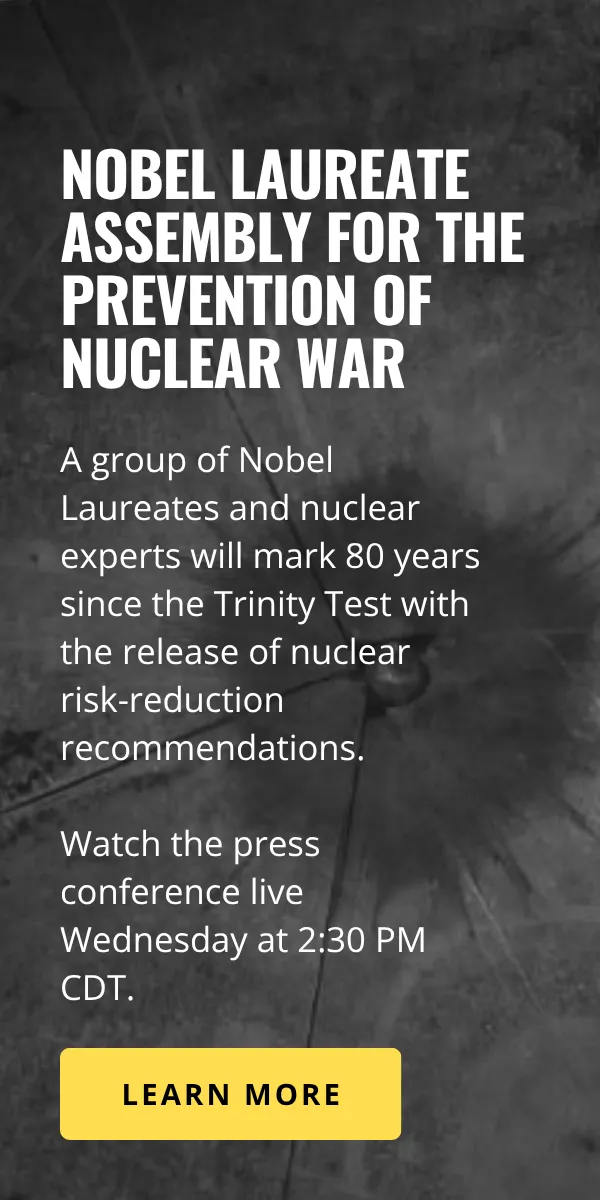



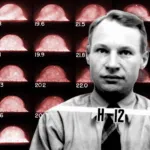

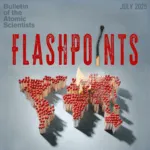

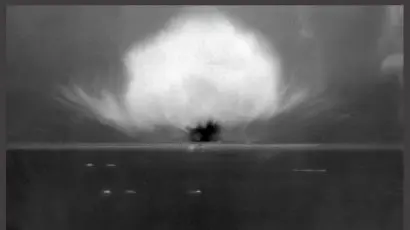
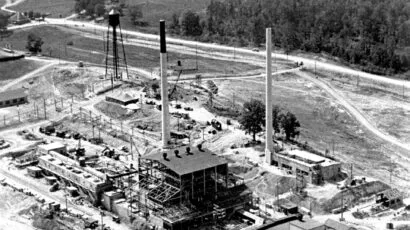
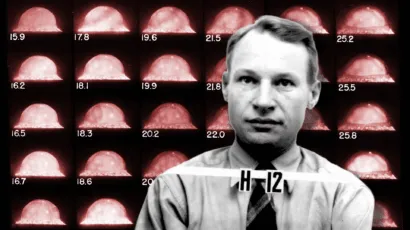


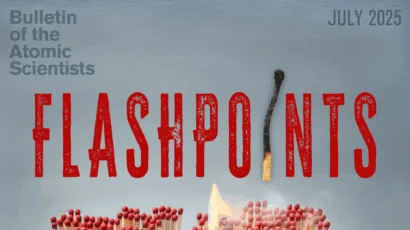

Very fair and balanced article